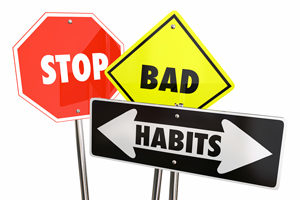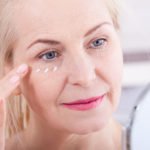Article Summary:
- Understand why your body ages, its purpose, and why it impacts some more than others.
- Discover what lifestyle changes you can make to naturally slow the aging process.
- Learn about natural remedies that slow down the aging process at a cellular level.
Question: What is Aging?
Although we’ve been conditioned to think that aging is some single “thing” that we can turn back with a magic potion, a scientific breakthrough, or a plot device in a science fiction movie, it doesn’t actually work that way. The simple fact is that aging is not the result of any one single factor, but is the cumulative result of multiple factors, including:
- The aging of cells
- The breakdown of telomeres, the strands of DNA at the ends of chromosomes that protect our genetic material
- Protein degradation
- The build-up of harmful compounds (Advanced Glycation End Products) that are formed when proteins or fats combine with sugar in the bloodstream
- Excess sugar activity
- Progressive systemic inflammation
- Progressive dehydration
- Accumulated toxic build-up in organ tissue
- Reduced circulation
- Reduced cellular energy production
- Changes in hormone levels and hormone balance
- Impeded energy flows in the body
- Excessive body weight
- And, of course, good old wear and tear
This list is hardly complete. We could add stress or the accumulation of free radicals in the body or the results of cumulative poor nutrition, etc. The key here is not to identify every single factor (an impossible task), but to understand that if you want to slow the aging process, you must look at more than a magic bullet approach involving one or two supplements.
Q: Is Aging Random, or Is It an Organized Process?
Aging can be broken down into three distinct categories. This is important because the three categories give us clues as to how to handle the factors contained within them. The three “primary” categories that affect how we age are:
- The things we do to ourselves and which are easily correctable (relatively speaking)
- The micro level factors programmed into our very cells, which until a few years ago seemed impossible to change
- The macro level factors programmed into our body as we age such as hormonal changes, many of which can indeed be modified
Q: What is the Purpose of Aging?

Surprise! Aging and death have a purpose and are good things for the species. The concept is simple — adaptation and evolution. It’s the reason that so many people who live in Sweden, for example, are blond and fair skinned and so many people who live in Africa are dark skinned. Where exposure to the sun is limited, people develop light skin to absorb sunlight more easily, and where exposure to sunlight is abundant, people develop darker skin to block more of the sunlight. In more immediate terms, that’s why people tan when exposed to sunlight.
Anyway, in order to ensure the survival of the species, nature selects those traits most useful for the survival of a species in a particular environment and passes those traits on to the next generation — evolving over time so that the species becomes more and more capable of surviving in its environment. Again, light complexions in areas where sun is in short supply and dark complexions where the sun is overabundant is just one example.
Okay, that part makes sense, but why do “we” have to die after passing on our genetic information? How does that advance the genetic cause? Would it spoil some vast eternal plan if we could hang around and watch the genetic parade march on by? And the answer, from a genetic point of view, is quite simple. If the older generation didn’t die off, it wouldn’t allow the species to advance because the older generations would continue to procreate and advance the “older” gene pool, generation after generation. It’s only by eliminating the older gene pool that the species advances.
Although, we as a species value antiques and pay huge sums for them, nature does not.
Q: How Does Nature Age Us?
In order to accomplish its purpose, nature has programmed our bodies with certain time bombs.
- For example, at the micro level, nature allows our cells to replicate only so many times before the cells become non-functional and die off.
- Nature programs certain macro level changes into our bodies so that once our “biological” usefulness has been fulfilled, aging is accelerated. Menopause is a prime example.
The benefits of this process of the old dying off and being replaced by the new is not just reserved for the next generation. And although it might not seem so, it provides immediate benefits for us too. We can see it at work in our bones for example. As our bones grow, older generations of bone cells die off and are replaced by new cells. Without this mechanism, we wouldn’t be able to repair broken bones. If all we had were one set of immortal cells, we wouldn’t be able to repair breaks. It is only because we are constantly replacing old “broken” cells with new “unbroken” cells that breaks can be repaired.
There was a cute movie based on this premise called Death Becomes Her in which Goldie Hawn and Meryl Streep become immortal. They cannot die, and the cells in their bodies cannot die. But without death and replacement, there is no mechanism for repairing damage. So, by the end of the film, although they are both alive, their bodies have suffered ghoulish comic damage.
The bottom line is that this whole mechanism of death and replacement works. And if it weren’t such a personal issue when we ourselves die, we’d all be pleased with the process.
It’s probably worth mentioning that the only “immortal” cells in our bodies are aberrant cancer cells. That should provide a clue as to why having immortal cells might not be such a good idea.
Q: Isn’t It Impossible to Slow Aging Since It’s a Natural Process?
Many people have suggested to me that trying to change this process is contrary to the laws of nature and shouldn’t be attempted. I don’t think so.
I would like to submit to you an opposing “genetic” point of view. If the purpose of the whole process is to advance the species, then with man we have a new element. No other species relies on its brain, on “thinking” if you will, for its edge in the world. That means that other species advance strictly by improving their gene pool in terms of physical adaptation. But humans advance not just according to physical traits, but according to what they know and how they think. (If that were not true, then why are so many computer nerds now moving to the top of the gene pool?) That means that knowledge and experience are becoming far more important for the survival of mankind than for any other species. Books and computers can capture the knowledge of an individual, but not their experience. The longer we can hold onto that experience, the greater our species’ chances of survival.
And I believe that nature supports this premise. As our knowledge grows, we are now learning that we can indeed manipulate and alter some of the limiting factors that nature built into the “early prototypes” of our bodies. In a sense, at the point knowledge has become fundamental to our survival, nature is allowing us to view and alter some of her previously hidden secrets.
Look, I’m not advocating for immortality. That creates all kinds of problems—both environmental and societal. We’re just talking about living a vibrant healthy life to your maximum lifespan VS the relentless diminution in quality of life that most of face over the last 30 years of our lives.
Q: How Can We Modify Our Immune Systems to Slow Down Aging
One of the major causes of death in the elderly is the collapse of the immune system as we age. This makes us susceptible to everything from pneumonia to cancer. Some of this is inevitable, of course, but it is amazing how much of it can be prevented and even reversed. I’ve covered this in detail in previous newsletters:
- Anatomy and Physiology of the Immune System, Part 2
- Anatomy and Physiology of the Immune System, Part 4
Q: How Does Inflammation Affect Aging, and What Can We Do About It?
Chronic inflammation is a major aging factor and a primary contributor to premature death. It is implicated in everything from lung problems to chronic heart disease, and even cancer. There are many things we can do that help reduce inflammation far better and more safely than taking an aspirin every day. Probably the two most important are:
- Regular supplementation with systemic, proteolytic enzymes.
- Bringing the ratio of Omega-6 to Omega-3 fatty acids back down from the 20 to 1 (actually often as high as 40 to 1) where it now sits closer to the 1 to 1 ratio where it needs to be
Q: How Can We Counter the Toxins that Accelerate Aging?
Every day we are exposed to over 100,000 “new” chemicals and toxic heavy metals that have been released into the environment over the last 100 years. Cleansing those toxins out of our bodies with colon, liver, blood, and heavy metal detoxes is essential for maximizing health and life span.
Q: What Circulatory Factors Affect Aging?
Proper circulation in the broad sense (blood, lymph, and energy) is essential for maximized life span.
- Blood
If there is any restriction of blood circulation (caused by anything from narrowing of the arteries to tension in the surrounding muscle tissue) several problems arise.- Enough oxygen can no longer reach key areas of the body, including your heart.
- Sufficient nutrients can no longer reach every cell in the body, thus starving them, weakening them, and making them vulnerable to mutation.
- The waste material produced by the cells can no longer be efficiently removed. The build-up of toxic waste in the cells eventually leads to cell mutation and death.
- Lymph
Your lymph is your body’s sewer system, removing dead cells, waste, toxic matter, heavy metals, bacteria, etc. from body tissue. Unfortunately, the lymph system has no pump of its own. If for any reason your lymph is stagnant, you end up poisoning yourself. This accelerates the aging process and the onset of age-related diseases such as cancer. - Energy
Fundamentally, our bodies are pure energy systems. As you look more and more closely at the subatomic structure of all matter, the physical world begins to disappear. All that’s left is a series of force fields and probabilities that create the illusion of matter as we know it. Certainly, we must deal with this illusion (the physical world) as we see it, but we also must deal with the consequences of the world of energy that remains unseen—but is nevertheless the true reality behind all physical matter. The bottom line is that a major factor in the aging process is when these energies in our body become unbalanced or diminished in any way.
Q: In What Ways Do Free Radicals Accelerate Aging?
Scientists now know that free radicals play a major role in the aging process as well as in the onset of cancer, heart disease, stroke, arthritis, and possibly allergies and a host of other ailments. The link between free radicals and the “aging diseases” is one of the most important discoveries since doctors learned that some illnesses are caused by germs. The use of a full-spectrum antioxidant supplement at a maintenance level may provide the ultimate defense against the premature aging effects of free radicals. At therapeutic levels, antioxidants may play a significant role in reversing many of the effects of aging and disease. Learn more about antioxidants here.
Q: What Effect Does Everyday Wear and Tear Have on Aging?

Many people don’t like to hear this, but it’s true. If you don’t move, you die. Exercise fundamentally changes every system and function in your body. And the older you get, the more important it is — and the more pronounced the benefits are.
- As reported in the Journal of the American Medical Association, two 45-minute weight (strength) training sessions a week can improve bone density, muscle mass, strength, balance, and physical activity in older women (ages 50-70). After one year of strength training, women emerged physiologically younger by 15-20 years than when they began. Other studies have demonstrated the same results for men who weight train.
- People in their 70s and 80s can experience strength gains of as much as 180% in a matter of just a few weeks.
Understand, exercise includes weight bearing exercise, aerobic exercise, balance exercise, and the almost universally forgotten stretching exercise.
The operative words when it comes to exercise are balance and common sense. If you overdo it, the benefits start to reverse, and you’re looking at long term disability from ligament and cartilage damage.
Q: What Role Do Diet and Nutrition Play in Aging?
This is a big topic — bigger than we can cover in this report. If you haven’t already done so, you can download your free copy of Lessons from the Miracle Doctors at www.jonbarron.org/detox/book-free-lessons-miracle-doctors and read Chapters 6 and 7. The key thought to remember is that you can’t build the same life expectancy into your body with pepperoni pizza, beer, and Ding Dongs that you can with healthy living food.
Q: What Other Factors Affect Aging?
What You Think
 And speaking of Miracle Doctors, one of the most important chapters in the book is also one of the most ignored. Everyone loves to read about detoxes and supplements, but most people skim right over the chapter titled, The Thought That Kills. What you think absolutely matters — not just mentally, but physically. Stress and depression are major aging factors.
And speaking of Miracle Doctors, one of the most important chapters in the book is also one of the most ignored. Everyone loves to read about detoxes and supplements, but most people skim right over the chapter titled, The Thought That Kills. What you think absolutely matters — not just mentally, but physically. Stress and depression are major aging factors.
Smoking
I don’t really have to talk about this, do I? Smoking not only shortens your life, it makes you look older in the process.
Calories and Sugar
Of all the things one can do to increase longevity, only one has been proven to actually extend life across the board: caloric restriction (CR). Caloric restriction is the only means of retarding aging that is both well-researched and proven. (Note: CR is not the same as dieting or starvation. It entails the reduction of caloric intake while maintaining the optimal intake of essential nutrients, especially vitamins and minerals.)
What effects does CR have on the body that extend life? It appears that its effects are threefold:
- Lowers body temperature
- Raises DHEA levels
- Lowers plasma insulin levels
Interestingly enough, lowering plasma insulin levels also tends to lower body temperature and increase DHEA levels, indicating that insulin may be a prime factor in the aging process. And in fact, this was supported by studies that showed that the glucoregulatory agent, metformin, might be just as effective as CR in reversing aging and rejuvenating the elderly — thereby resulting in Life Extension’s article indicating that regular use of metformin might be the “Most Significant Anti-Aging Discovery in Medical History.”
So, what’s the reality?
First, although, as far as drugs go, metformin is relatively benign, it is not totally without side effects. It occasionally causes death from lactic acidosis, for example, which is not insignificant for those who die.
But more importantly, it is quite likely that some minor changes in lifestyle and the use of natural supplements can offer the same benefits with no negative side effects and at less cost.
- Cut way back on your intake of high glycemic foods. (This is the positive side of the low carb craze.)
- Use natural glucoregulatory herbs with your meals. These include herbs such as:
- Nopal cactus
- Konjac mannan
- Gymnema sylvestre
- High galactomannan fenugreek extract
- Banaba leaf extract
- Bitter melon extract
- Blueberry leaf extract
- The use of these herbal extracts will significantly reduce the amount of simple carbs your body absorbs and minimize the insulin response from those that get through. In effect, they will mimic the effect of metformin, without the side effects.
Q: What about the micro level factors mentioned earlier?
I’ve written many times about the importance of L-carnosine based formulas in slowing down the aging process. At the cellular level, carnosine can increase cell life, increase life expectancy, and help you both feel younger and look younger. And it has other benefits. It can improve athletic performance and protect all the proteins, and organs made from those proteins, from damage. It’s a big deal.
Q: And finally, what can we do about the hormonal changes that not only happen as a result of aging—but also accelerate the aging process when they occur?
All hormones change as we age. Estrogen levels drop in women and rise in men. The bottom line is that we need to:
- Regulate estrogen levels. First, by using progesterone crème to control estrogen dominance caused by exposure to chemical estrogens in the environment. This is true for both men and women. Then, women will likely need to supplement with an all-natural estriol crème starting with menopause to prevent their estrogen levels from plunging.
- Maintain adequate melatonin levels either by making sure that we sleep in pitch-black environments or by supplementing with a time-released melatonin capsule.
- Use an HGH secretagogue to boost flagging human growth hormone levels as we age
- And supplementation with low doses of 7 Keto DHEA and pregnenolone may also make sense
But the one hormone I want to focus on today is testosterone—especially for women. Yes, we all understand that maintaining adequate free testosterone levels for men is crucial. It:
- Pumps up energy levels
- Drives our desire to attack the day
- Fires the need to succeed
- Bonds us with our mates
- Fuels our sexual desires
- Elevates our levels of sexual satisfaction
- Builds muscle
- Burns off fat
- Facilitates better circulation
If your free testosterone levels drop, all these qualities—which are associated with youth and vitality—also diminish.
But here’s the big surprise: testosterone is even more important in women than men for all these reasons—and please excuse the pun—on steroids. And the reason is very simple. Since women have so much less testosterone to start with, even very small changes can have a major impact. The average total testosterone level in men is 270-1070 ng/dL (9-38 nmol/L). In women, it’s 15-70 ng/dL (0.52-2.4 nmol/L). That means that a drop of 70 ng/dL (0.52-2.4 nmol/L) will be pretty much unnoticed in most men but drop virtually every woman to zero—with devastating consequences. (Think all those benefits listed above gone from your life.) Bottom line: supplementing with an all-natural testosterone balancing formula is essential for every man and woman starting at about age 30.













Wow Very Cool Jon enjoyed it immensely
This is an immensely informative article! I appreciate tremendously the fact that you “cut to the chase,” and deliver the essential wisdom and fact-based recommendations that every man and woman in our culture NEEDS to have. Thank you!!